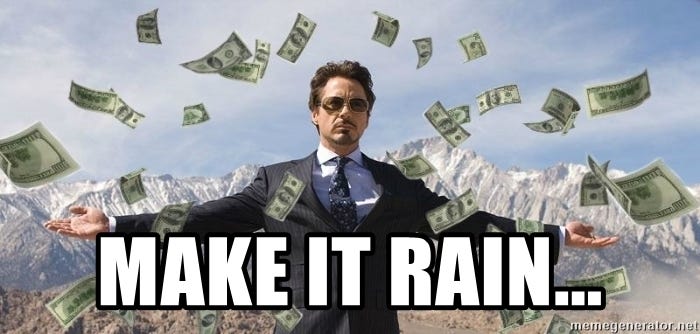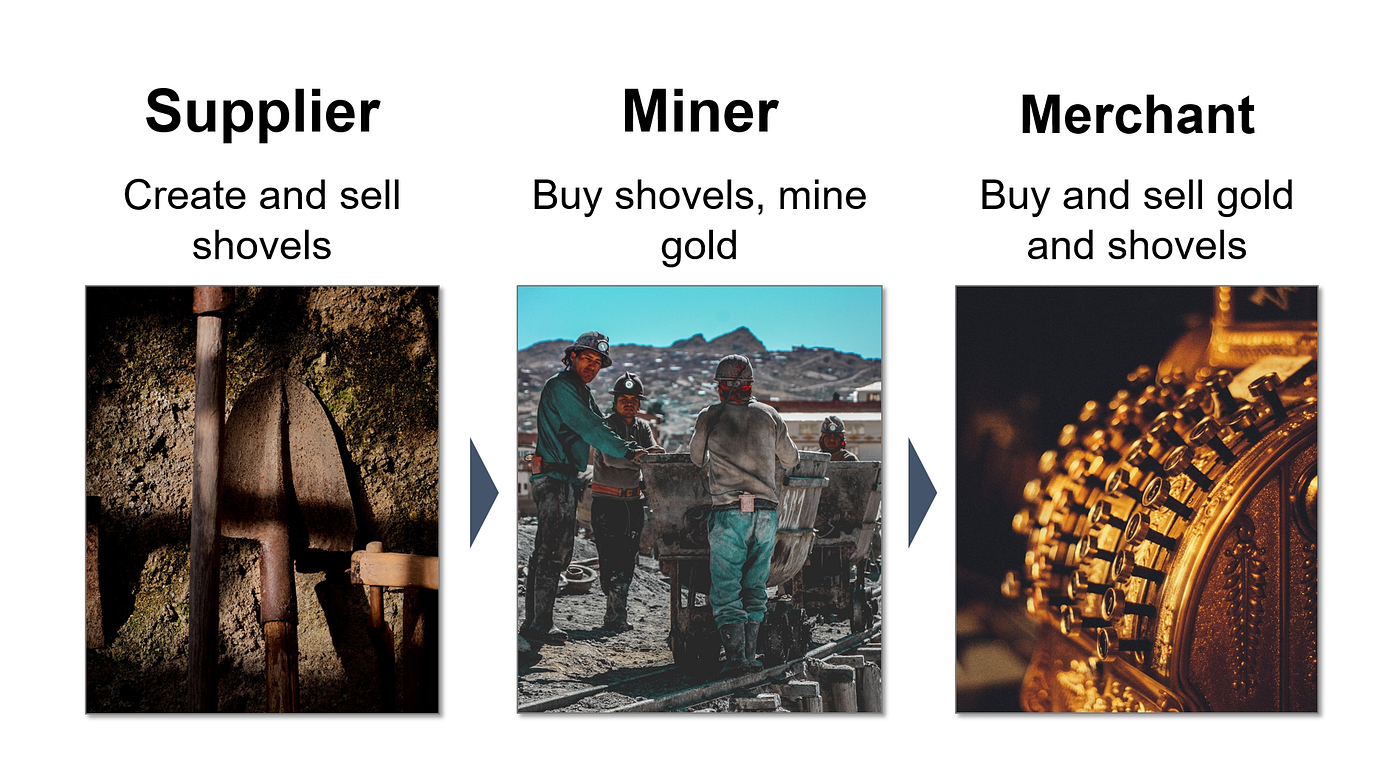Gold Rush The Game How To Make Money Fast
How to make money in the blockchain gaming 'gold rush': Mine gold, sell shovels, arbitrage the market
![]()
TLDR: There are three ways to make money in blockchain gaming: mine for gold, sell the shovels, or arbitrage the market.

One of the biggest advantages of blockchain gaming is the tradeability of items for real money. What's interesting about this is that it facilitates a whole new breed of gamer. The 'money maker'. The player who plays to make a profit.
This is not new in games. Gold farming has occurred for decades, most famously done in games such as WoW and Runescape. Blockchain gaming simply expands the possibilities for how this can be done.
Goal of this post is to share a memorable framework for how to profit from blockchain games
Exam p les below are deliberately generic. Instead of writing a guide that is true now but may become outdated in a few months, this framework is intended to be applicable to any game.
I acknowledge there will be other frameworks. This is just one example that I like which demonstrates you could think about making money from a game. Feel free to share other ideas!
The 'Gold rush' framework
Major gold rushes took place in the 19th century. When there was a new discovery of gold, hundreds of thousands of hopeful people would flock to the mines. There were three main groups of people which profited:
- Miners dug the ground and found gold
- Suppliers sold the supplies which miners needed, such as picks and pans
- Merchants would buy and sell the gold for profit
These participants represent people in the 'value chain' who work together for mutual benefit. We can apply this approach to blockchain games.
Translating to blockchain games
Given the growth of blockchain games, the 'Gold Rush' is an interesting metaphor for how you can make money from playing blockchain games. A blockchain game can be thought of as having the same three major participants: the supplier, the miner and the merchant.

1. Miner — buys the shovels, mine the gold
This group of people play the game to achieve the game's primary objective. They are dedicated enough such that they are willing to spend to achieve their goal. The goal itself can vary significantly, and includes financial (including play-to-earn), prestige (being the strongest), collecting (having the rarest stuff), etc.
Take any game and think about what this might be. You may want to be in this group yourself, or you may want to understand who is in this group so that you can sell / buy from them.
Generic examples:
- PvM game where players earn 'tokens' for battling, which can be redeemed for money
- PvP game where players stake ETH and enter into a battle-royale
- A competitive game where the objective is to climb the ranked ladder and compete in eSports
2. Supplier — create and sell the shovels
These are the group of people on the 'sidelines' who fuel the main part of the game. They sell items which help the 'miners' achieve their primary objective.
The opportunity for the supplier lies in correctly identifying what the miners want. This is most interesting for me personally, as the opportunities are always changing, and because competitive dynamics of multiple suppliers & miners means it's a strategic question of how you should compete.
Generic examples:
- Harvesting raw materials and crafting armor and weapons which can be used in battle
- Level up characters until the max level, before selling the character
- Killing monsters and farming 'tickets' which are needed to compete in tournaments
- Creating materials which can be used by players to gain XP
3. Merchant —buys and sell the gold (or the shovels)
This group buys assets with intention to sell for profit. They look for market opportunities or price changes and speculate over short or long-term horizons. This group doesn't actually have to play the game, and instead can make money via the marketplace. In blockchain games, this is the group most likely to benefit from using bots/tools.
Generic Examples:
- Long-term investors who buy 1 of 1 items or build a complete collection with the intention to sell to a whale once the game grows
- Arbitrager who buys on one marketplace and sells on another
- Buying up supplies before a big tournament because you expect demand to increase
- Opportunistically buying up items which are underpriced and selling for a normal price
Caveats of the approach
It's important to also understand how to tailor the framework or add to it:
- There may be more than three groups in a game — the supply chain can span more layers, or there can be sub-groups within a group. Find the niche(s) that work for you.
- There can be more than one objective in a game (some people play for fun, some play to make money, etc). If this is the case, each objective (the 'gold') will be supported by different suppliers. The number of arbitrage opportunities will increase. It's important to identify where multiple 'chains' that exist.
- The opportunities are always changing. Prices change. Supply will change. Demand will change. You need to be aware of the fundamentals instead of why doing something makes money, rather than just copying others.
Key takeaways
- One approach to figuring out the best way to make money from blockchain games is the 'gold rush' approach
- There are three ways to profit in this model: Mine Gold, Sell Shovels, Arbitrage the Market
- Understanding and applying this framework to a blockchain game can help identify profit opportunities (or lack of opportunity)
If you found this useful please follow me on Medium or Twitter.
Gold Rush The Game How To Make Money Fast
Source: https://medium.com/@xderek.lau/how-to-profit-in-the-blockchain-gaming-gold-rush-mine-gold-sell-shovels-arbitrage-the-market-d1d154a45b5a
Posted by: mcnultythisings.blogspot.com

0 Response to "Gold Rush The Game How To Make Money Fast"
Post a Comment